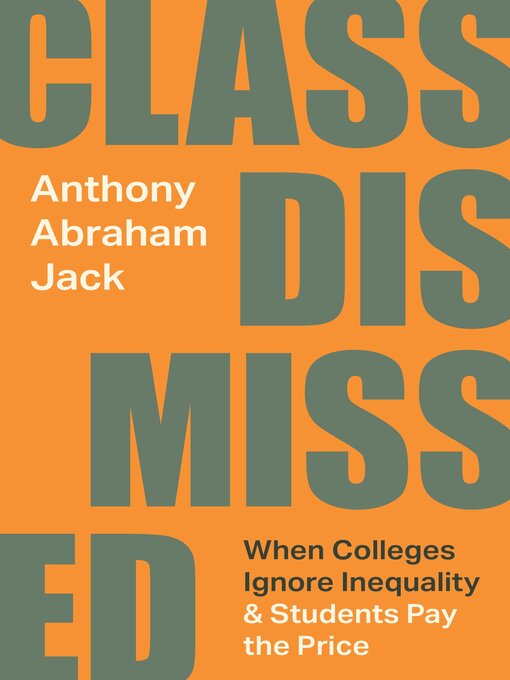A revealing account of the entrenched inequities that harm our most vulnerable students and what colleges can do to help them excel
Elite colleges are boasting unprecedented numbers with respect to diversity, with some schools admitting their first majority-minority classes. But when the twin pandemics of COVID-19 and racial unrest gripped the world, schools scrambled to figure out what to do with the diversity they so fervently recruited. And disadvantaged students suffered. Class Dismissed exposes how woefully unprepared colleges were to support these students and shares their stories of how they were left to weather the storm alone and unprotected.
Drawing on the firsthand experiences of students from all walks of life at elite colleges, Anthony Abraham Jack reveals the hidden and unequal worlds students navigated before and during the pandemic closures and upon their return to campus. He shows how COVID-19 exacerbated the very inequalities that universities ignored or failed to address long before campus closures. Jack examines how students dealt with the disruptions caused by the pandemic, how they navigated social unrest, and how they grappled with problems of race both on campus and off.
A provocative and much-needed book, Class Dismissed paints an intimate and unflinchingly candid portrait of the challenges of undergraduate life for disadvantaged students even in elite schools that invest millions to diversify their student body. Moreover, Jack offers guidance on how to make students' path to graduation less treacherous—guidance colleges would be wise to follow.
- Just Added Adult Fiction eBooks
- Just Added Adult Nonfiction eBooks
- Spanish Language Titles (Just Added)
- Fiction to Read for Women's History Month
- Hallmark After Dark
- YA Titles That Adults Will Love, Too
- Reimagined Classics
- Saw it on Netflix (or Prime or Hulu or HBO), now read the book
- Oh My Gods & Goddesses
- Nonfiction That Reads like Fiction
- I Should Probably Read This Sometime...
- Reese's Book Club
- New GNs & Manga for Adults
- See all ebooks collections
- New audiobook additions
- Spanish Language Titles (Just Added)
- New Adult Fiction Audiobooks
- New Adult Nonfiction Audiobooks
- Books to Listen to for Women's History Month
- Romance for Listeners
- YA Titles That Adults Will Love, Too
- Reimagined Classics
- Best Audiobooks for Your Commute
- Reese's Book Club
- Available now
- New kids additions
- New teen additions
- See all audiobooks collections


